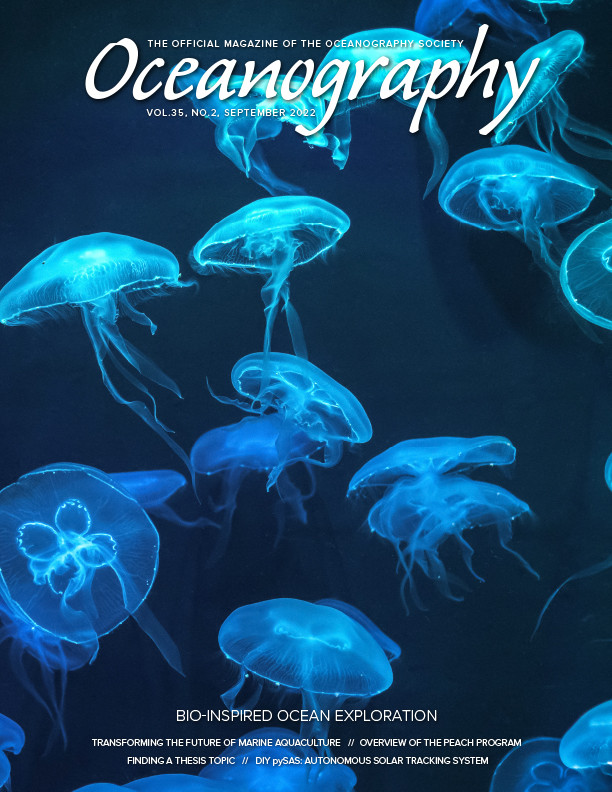Full Text
Over the summer, TOS conducted a survey of its membership, asking questions about how readers primarily access Oceanography (paper or online), what content they read the most, what subjects we should cover in the future, and whether they anticipate publishing an article in Oceanography in the next three years. The main purpose of the survey was to see if, on the magazine’s 35th anniversary, we needed to make some adjustments to maintain our readership. With the more than 100 responses submitted, spanning all career levels, I am pleased to report that overall, survey respondents seem to be content with our current format, and they offered many excellent thoughts on topics Oceanography should cover in the future and areas where we could do better.
While we are still digesting the responses to the survey, one significant misconception has come to light. Several of the responses to the question, “Do you plan to publish in Oceanography in the next three years,” suggest that there is a perception, though we don’t know how widespread, that Oceanography only publishes scientific articles under the special issue banner, that we don’t accept manuscript submissions that fall outside of special issue topics. That is not the case. Nearly every issue contains at least a couple of peer-reviewed articles under the “Regular Issue Feature” banner as well as other non-special issue, peer-reviewed content in such categories as Breaking Waves, Ocean Education, DIY Oceanography, and Hands-On Oceanography. In fact, this issue contains only articles that were submitted to Oceanography outside of any special issue designation.
In an effort to bring clarity to the sorts of article submissions we hope to receive and the pathway to submission, this year we overhauled our Author Guidelines (https://tos.org/oceanography/guidelines). For example, we write that, “Feature articles can include review papers that summarize the current state of knowledge of a particular topic, synthesis papers that discuss new findings and how they significantly revise our thinking about a topic, and more traditional scientific research papers from across the full spectrum of oceanography and marine technology.” And subjects for Breaking Waves articles “have the potential to move the field of oceanography forward or in new directions.” The guidelines contain information on all of the other categories of articles that we publish as well.
I strongly encourage you to consider submitting a manuscript to our peer-reviewed, open access journal that is—to quote the Oceanography guidelines again—“of broad interest to our readership,” which ranges from ocean science students to emeritus professors and industry professionals. Such articles will allow TOS to strengthen its commitment to promoting cross-disciplinary communication in the ocean sciences. Act now—don’t wait for a next special issue that is in your research area!
– Ellen S. Kappel, Editor

